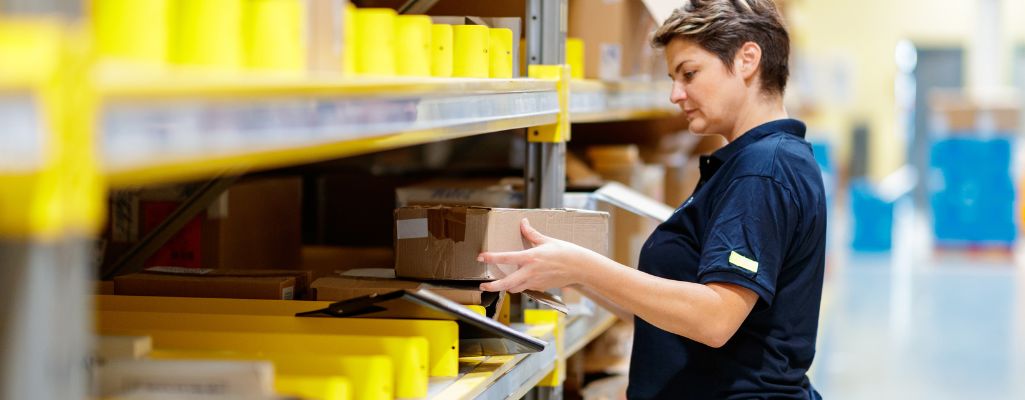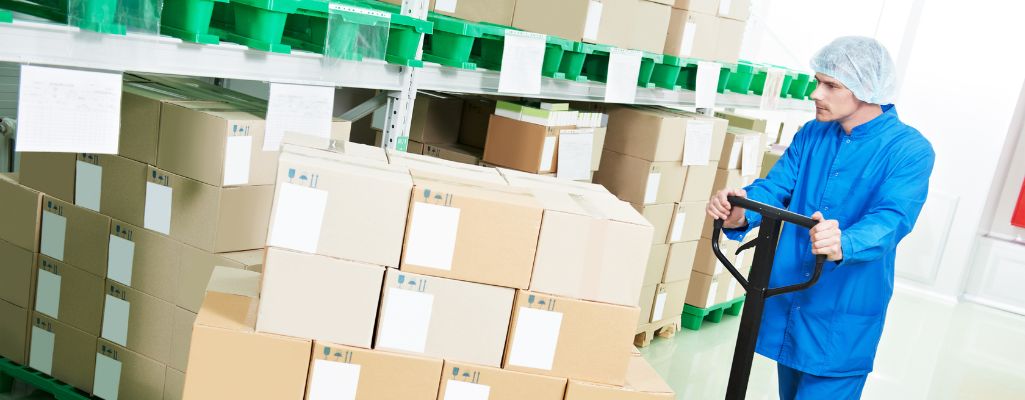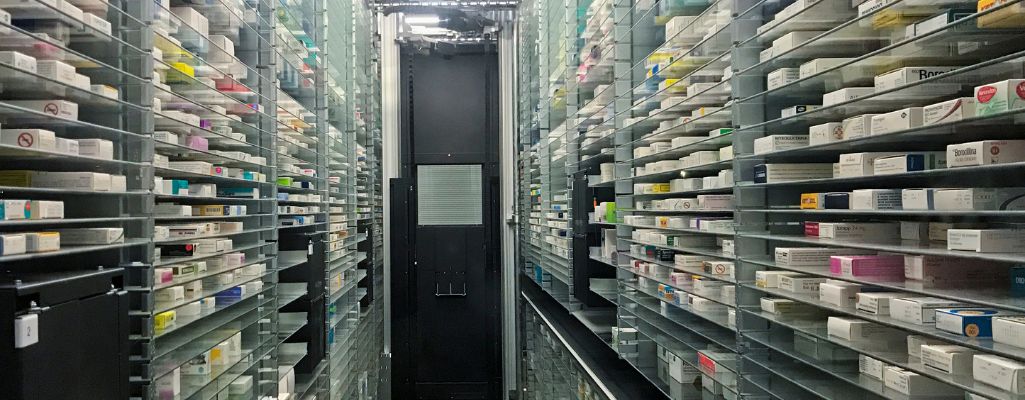La covid-19 puso sobre la mesa las fortalezas y debilidades de la logística farmacéutica, dando paso a una nueva forma de demanda de los productos farmacéuticos que requieren una mayor eficiencia de la logística sanitaria.
Tener una sanidad puntera y que dé respuestas a los actuales y futuros problemas de la población es algo que todos los gobiernos buscan. Dentro de esas preocupaciones, la logística sanitaria juega un papel esencial.
Dentro de la misma, la logística farmacéutica es clave para hacer llegar todo tipo de productos sanitarios a hospitales, centros sanitarios y hogares, sobre todo cuando se viven situaciones tan graves como las que vivimos en 2020 y 2021.
Dos años cruciales para valorar la calidad de la logística sanitaria en emergencias, donde la gestión de almacenes, así como los datos o, más bien, la predicción que nos pueden dar los mismos, son clave.
La transformación digital en la logística sanitaria
Uno de los retos de la logística sanitaria es la transformación digital de los hospitales, centros sanitarios, farmacias y laboratorios que proporcionan tanto material como medicamentos para hacer frente a los diferentes problemas de salud de la sociedad.
Esta transformación supone una mayor eficiencia en la logística sanitaria, donde el transporte de las mercancías requiere de cuidados especiales y la logística farmacéutica requiere de las máximas garantías de seguridad.
Para ello, la transformación digital de la logística sanitaria pasa por la implementación de las siguientes herramientas innovadoras:
Optimización de costes
Ya hemos mencionado que la información que revelan tanto el Big data como el dato predictivo ayudan a optimizar los costes en transporte y en gestión de almacenes, al poder calcular mejor el espacio que necesitamos, la infraestructura o herramientas necesarias para conservar en las mejores condiciones los medicamentos.
Además, la revisión periódica de las maquinarias evitará que la cadena de producción se tenga que detener por problemas no resueltos con anterioridad, algo que pueden suponer un grave problema en momentos de gran demanda.
Calibrar de manera óptima los sistemas de refrigeración y mantenimiento de los productos sanitarios y que estos estén conectados a los sistemas de información de la empresa, de manera que los responsables tengan acceso inmediato a cambios de temperatura que podrían dañar los productos.

Big data y dato predictivo
Mediante diversos sistemas de inteligencia artificial y uniendo los diferentes datos que les proporcionan las diferentes entidades públicas y privadas relacionadas con la salud, el Big data permite a las farmacéuticas:
- Mejoras para los pacientes: y para la población en general, al poder adelantar la virulencia, llegada o prevalencia de ciertas enfermedades, lo que permite dar una respuesta más eficaz de cara los tratamientos y a la atención al paciente.
- Adelantarse a la demanda: y evitar así roturas de stock a lo largo de todo el año y de manera especial en las épocas más complicadas, además de optimizar mejor sus almacenes, gracias al dato predictivo, lo que también supone una reducción de los costes de almacenamiento.
- Mejorar el transporte de mercancías: porque van a poder optimizar tanto la demanda de vehículos concretos, como facilitar la distribución de los productos, reduciendo los tiempos de entrega.
Trazabilidad
La trazabilidad garantiza la seguridad de los medicamentos, pero también de la salud de los pacientes, por ejemplo, cuando las pulseras que llevan cuando ingresan en el hospital, incluyen etiquetado RFID, que es prácticamente imposible de violar.
Además, la trazabilidad de un producto sanitaria permite conocer: dónde se ha producido, cuál es su composición y dónde se ha distribuido. De esta manera, en caso de que haya que retirar un producto porque ha habido algún problema con él, localizarlo y sacarlo del mercado será mucho más rápido y efectivo.
Del mismo modo, la trazabilidad, mediante el etiquetado RFID permite saber si un producto es o no legal a la hora de venderse, en función de la normativa vigente en cada país, haciendo así frente a fraudes y evitando causar problemas de salud a la población.
Picking farmacéutico
El picking farmacéutico permite:
- Identificar de forma rápida y sencilla un producto
- Registro de entrada y salida en el sistema de gestión de productos de la empresa, farmacia y/o centro de sanitario
- Reducir al máximo errores de registro de datos y, por tanto, de suministro o rotura de stock.
- Ofrecer de manera más rápida el producto al cliente o paciente

Problemas habituales en la logística sanitaria
Cuando una empresa farmacéutica, centro sanitario o farmacia no apuesta por la innovación o digitalización en logística sanitaria, los problemas a los que se enfrenta son:
- Falta de previsión y, por tanto, rotura de stock, por lo general, en los momentos más delicados del año. La falta de respuesta inmediata en estos casos aumenta, a su vez, el gasto sanitario, puesto que hay más posibilidades de ingresos de los pacientes en los hospitales y de que su estancia se prolongue más o los tratamientos tengan que ser más costosos al agravarse la situación.
- Obsolescencia de las herramientas. Que dan errores en la producción de medicamentos, retrasando su entrega, con los problemas de suministro que esto causa.
- Falta de registro seguro de datos. No tener una correcta trazabilidad de los productos sanitarios hace que estos sean menos seguros y, por tanto, la sociedad está más expuesta a adquirir productos que no se encuentren en condiciones óptimas o que no entren dentro de los cursos legales de venta.
- Falta de coordinación entre la tienda física y la tienda online, en el caso de las farmacias, teniendo problemas de suministro o de rotura de stock, tanto para los clientes que compran online, como para aquellos que se acercan hasta su establecimiento.
Conclusión
El aumento de la edad de la población, así como el de enfermedades cada vez más extendidas por el mundo, que requieren de una atención inmediata para evitar más ingresos graves o fallecimientos, hace necesaria la apuesta por la innovación en logística sanitaria.



